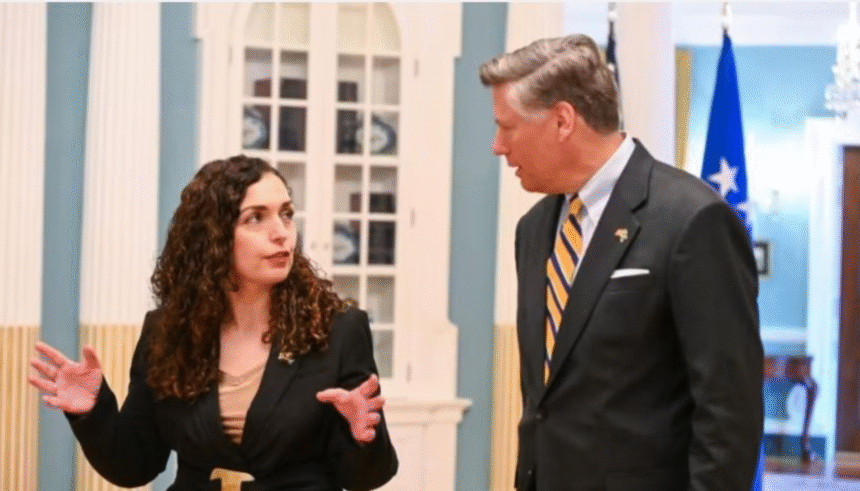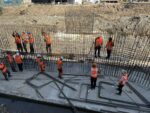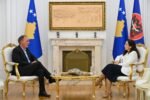As Kosovo seeks to deepen its strategic alliance with the United States, experts believe that real progress will depend on its ability to create a stable and investor-friendly internal environment. Energy, defense, and digital innovation have emerged as key sectors where U.S.-Kosovo cooperation could bring mutual benefits — if Kosovo strengthens rule of law and cuts bureaucratic red tape.
During her recent visit to the U.S., President Vjosa Osmani highlighted Kosovo’s growing interest in forging a new kind of relationship with the U.S., focused not only on political ties but also on economic collaboration. Upon returning, she confirmed that the U.S. views Kosovo as a strategic partner.
While the U.S. Embassy in Pristina has not commented publicly on specific investment priorities, Arian Zeka, head of the American Chamber of Commerce in Kosovo, identified defense and cybersecurity, gas infrastructure development, and digital economy innovation as top areas for potential cooperation.
High Potential, Persistent Challenges
Kosovo’s geographic position, a young and educated workforce, and competitive tax policies make it an appealing partner for American investors. However, the country still faces deep structural challenges. Zeka stresses that legal and institutional reform is essential, as weak governance and slow decision-making undermine investor confidence in an already volatile global environment.
“The government must further strengthen rule of law, avoid actions that create legal uncertainty, and improve court efficiency to protect investors,” Zeka told RFE/RL.
Lulzim Rafuna, president of the Kosovo Chamber of Commerce, echoes the sentiment. He warns that without serious reforms in justice, education, and healthcare, Kosovo will struggle to win investor trust. He also calls for a stronger economic diplomacy effort — working closely with U.S. institutions to reshape Kosovo’s international image.
“Political leaders must prove that Kosovo is a beacon of stability in the Balkans — not a source of regional tension,” said Rafuna.
Economic Narratives in Conflict
This month, the World Bank and International Monetary Fund removed Kosovo from the list of fragile and conflict-affected states — a decision hailed by Acting Prime Minister Albin Kurti as validation of his government’s efforts.
However, economists dispute this interpretation. Rafuna and others argue that government rhetoric and actions — including warnings of potential conflict with Serbia — have often added to investor uncertainty.
Economic analyst Lekë Musa recalls the government’s rejection in 2021 of a U.S.-funded gas infrastructure project. The decision was based on cost concerns but seen by some as a missed opportunity to anchor strategic American engagement.
“Kosovo cannot offer much to the U.S., but when there is a viable project — like the gas pipeline — it should be implemented, not dismissed,” Musa said.
According to the Kosovo Investment and Enterprise Support Agency, foreign direct investment (FDI) reached €856 million in 2023, with the U.S. contributing about €87 million. However, most U.S. capital has gone into real estate, not industries that generate sustainable growth or new jobs.
The Need for Strategic Engagement
The U.S. remains one of Kosovo’s top trade partners, with imports from the U.S. totaling €106 million and exports around €39 million in 2024. Beyond trade, Washington has been instrumental in supporting rule of law, economic development, and Kosovo’s Euro-Atlantic integration — contributing more than $2 billion in aid since the late 1990s.
Experts agree that Kosovo must align with U.S. strategic priorities and engage more effectively to attract American investment. Normalizing relations with Serbia, they say, remains crucial.
“The American Chamber has often called for prioritizing talks with Serbia to reach full normalization as quickly as possible,” said Zeka.
U.S. diplomat Daniel Fried concurs but adds that economic cooperation should not wait on political resolutions.
“An aggressive effort by Kosovo to promote itself as a business destination could yield real results. Once you have success stories, you can showcase them — that builds credibility,” Fried told RFE/RL.
The 2020 Washington Agreement between Kosovo and Serbia included provisions for economic normalization, many of which remain unfulfilled. Zeka laments missed opportunities, particularly the lack of follow-through on financing strategic projects through American institutions.
He calls for a more dynamic approach from Kosovo’s government, including eliminating customs duties on American goods and offering creative investment incentives. But above all, he insists that unwavering commitment to rule of law must guide every policy.
“That would be the strongest message Kosovo could send to U.S. investors,” Zeka concludes.







